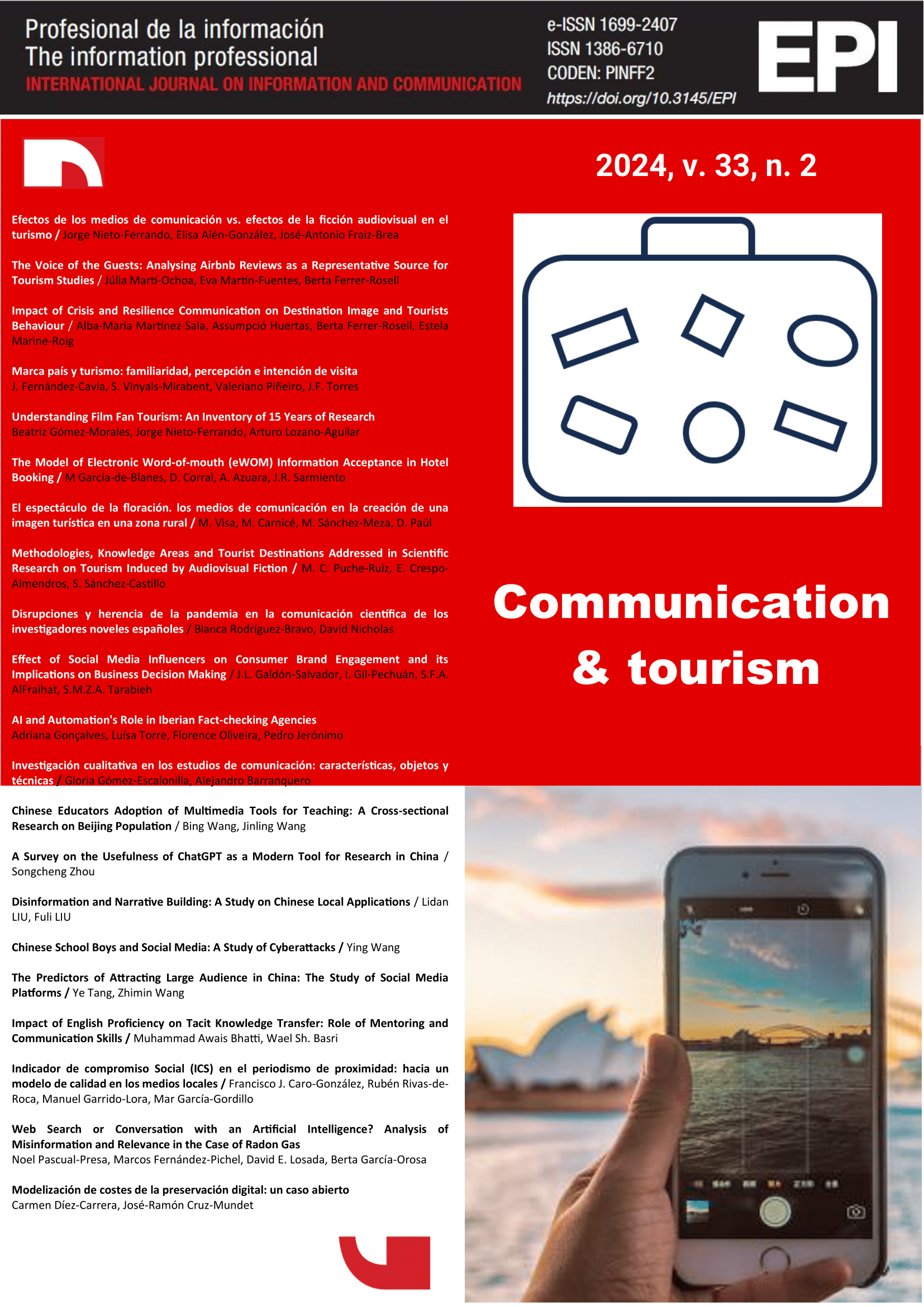A Survey on the Usefulness of ChatGPT as a Modern Tool for Research in China
DOI:
https://doi.org/10.3145/epi.2024.0213Keywords:
ChatGPT, Artificial Intelligence, Research Writing, Scholarly Research, Research InformationAbstract
ChatGPT is famous for assisting in research, among other AI-generated research assistance modules. It is being updated
and its users are getting reliable assistance in research work. However, the current study focused on measuring the
impact of ChatGPT on academic research, finding theory, data analysis, proofreading, and error identification. The
motivation for this research was to contribute knowledge of how ChatGPT is helpful for researchers for university-level
scholars in China. Data was collected from scholars working in Chinese universities. Considering the convenience
sampling method, a survey-based approach was used to collect data. The study's empirical findings confirmed the
significant impact of ChatGPT on academic research, finding theory, data analysis, proofreading, and error identification.
This research addressed the gaps in the literature as previously scholarly research has not focused on the phenomena
investigated by this research. Hence, this study has some practical implications for advancing the use of ChatGPT for
Chinese university-level scholars to improve their research contributions. Chinese universities are recommended to use
ChatGPT in their scholarly research work, but careful use is required. Furthermore, the scholars are supposed to
acknowledge the use of artificial intelligence (AI) generated tools in research publications.
Downloads
Downloads
Published
How to Cite
Issue
Section
License
Copyright (c) 2024 Profesional de la información

This work is licensed under a Creative Commons Attribution 4.0 International License.
Dissemination conditions of the articles once they are published
Authors can freely disseminate their articles on websites, social networks and repositories
However, the following conditions must be respected:
- Only the editorial version should be made public. Please do not publish preprints, postprints or proofs.
- Along with this copy, a specific mention of the publication in which the text has appeared must be included, also adding a clickable link to the URL: http://www.profesionaldelainformacion.com
- Only the final editorial version should be made public. Please do not publish preprints, postprints or proofs.
- Along with that copy, a specific mention of the publication in which the text has appeared must be included, also adding a clickable link to the URL: http://revista.profesionaldelainformacion.com
Profesional de la información journal offers the articles in open access with a Creative Commons BY license.




